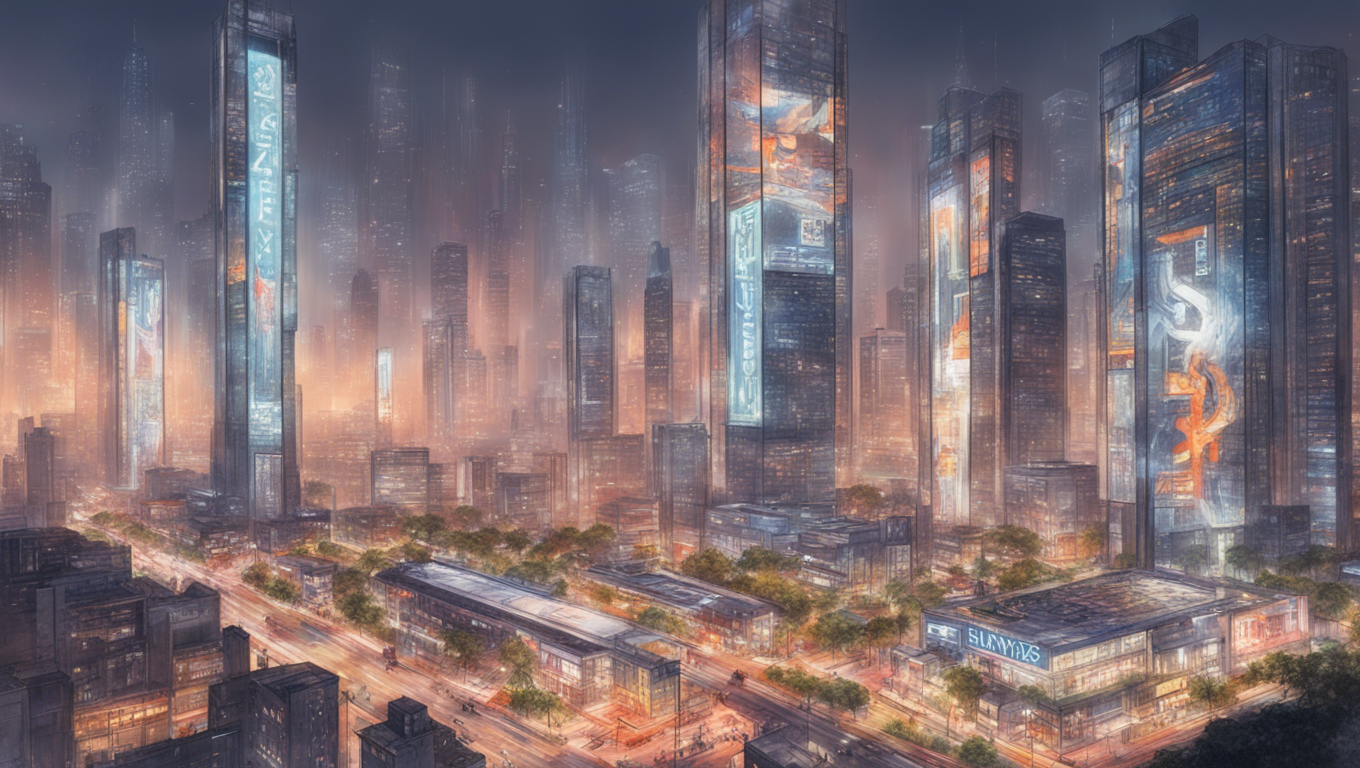At the CES 2024 tech conference in Las Vegas, SK Hynix CEO, Kwak Noh-Jung, made an ambitious prediction about the company’s future. He stated that SK Hynix’s market value could double in just three years, reaching a staggering 200 trillion won (approximately $152 billion). The driving force behind this growth is the increasing demand for memory chips, particularly in the field of artificial intelligence (AI).
As generative AI technologies become more prevalent, the need for advanced memory solutions becomes paramount. Kwak explained that as AI systems continue to develop, customer demands for memory chips are diversifying. With this in mind, SK Hynix aims to capitalize on this trend by ensuring that their products meet these emerging needs. Additionally, the company intends to maximize investment efficiency and maintain financial stability.
Kwak’s confidence in SK Hynix’s potential growth stems from their position as leaders in the development of high bandwidth memory (HBM) chips, specifically designed for generative AI. In fact, they have already secured Nvidia, a renowned AI-chip leader, as a client. These HBM3 chips have the capability to input and process large volumes of data, allowing AI systems to operate at high speeds.
While rivals Samsung Electronics and Micron have also developed their own versions of the next-generation HBM3E chips, called HBM3E, SK Hynix has managed to stay ahead by consolidating their internal HBM capabilities.
Addressing the current production cuts implemented by SK Hynix, Kwak hinted that changes are on the horizon. He suggested that in the first quarter, adjustments will be made to increase production of dynamic random-access memory (DRAM) chips used in tech devices. However, the plans for NAND flash chips, utilized for data storage, will be dictated by market conditions and responded to after mid-year.
It is worth noting that memory chip manufacturers, including SK Hynix and Samsung, have faced significant challenges amid an industry downturn caused by high inflation and weakened demand for chip-containing gadgets. However, the fourth quarter of 2023 saw industry giant Samsung increase its supply of silicon wafers, indicating a desire to ramp up production as memory chip prices rebounded.
In light of these developments, SK Hynix experienced a 1.2% rise in trading, thereby reaching a market capitalization of 100.1 trillion won. While the broader market experienced a slight dip of 0.1%.
SK Hynix’s ambitious forecast shows their confidence in the future of memory chip demand driven by AI technologies. If they can successfully adapt to changing needs and maintain their competitive edge, the company stands a chance of achieving incredible growth in the coming years.





Use the share button below if you liked it.